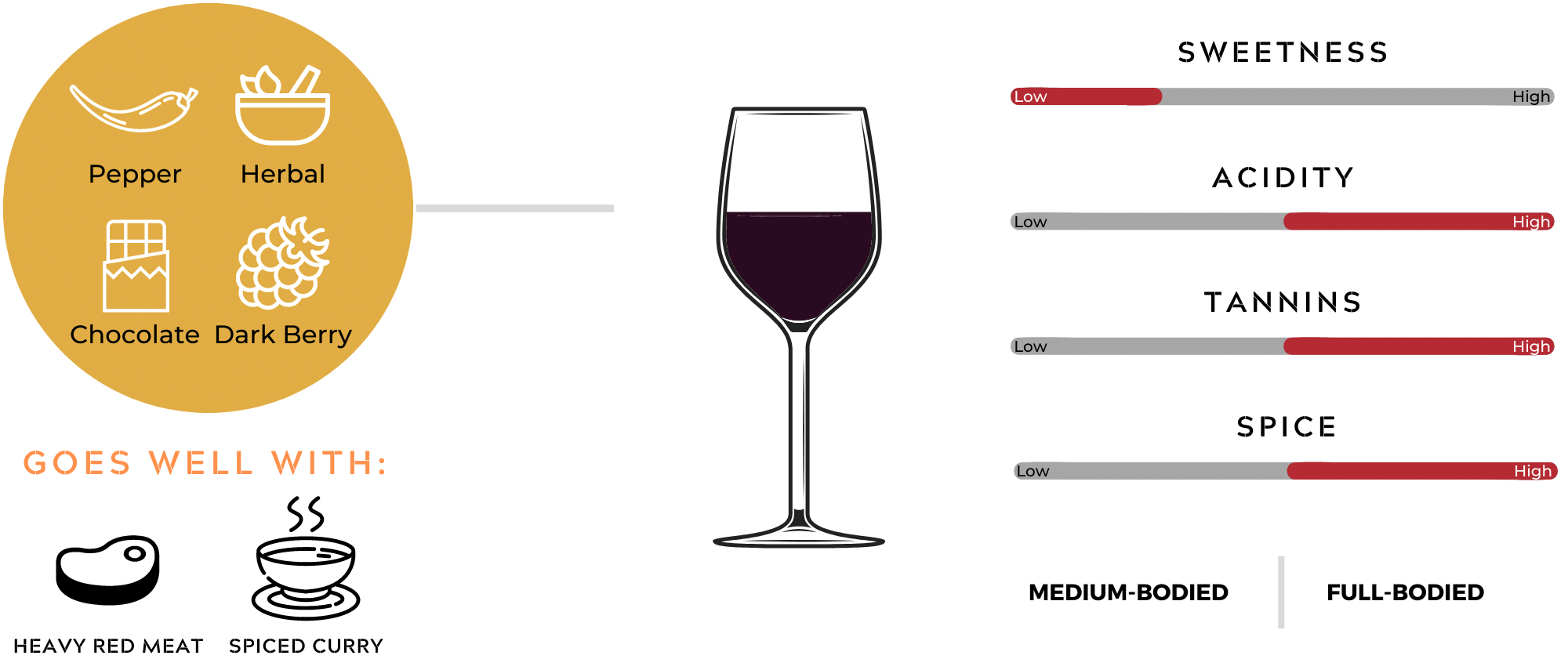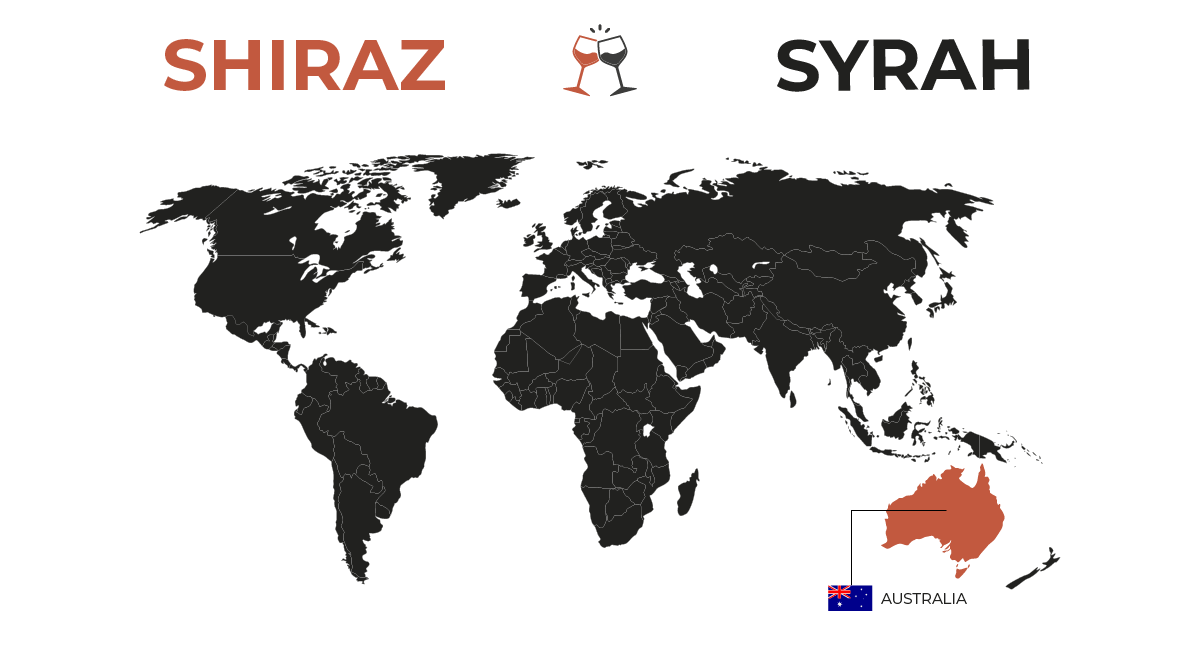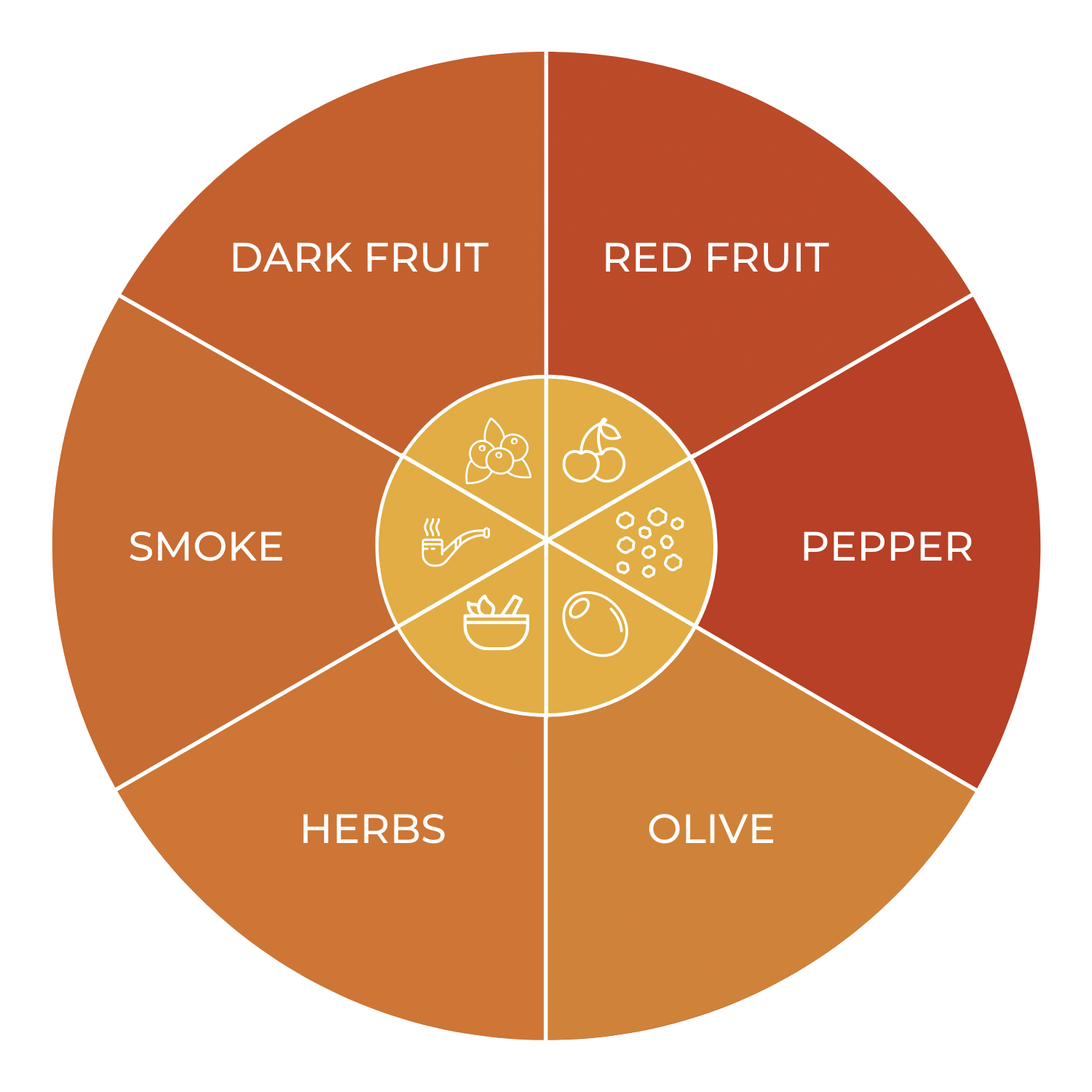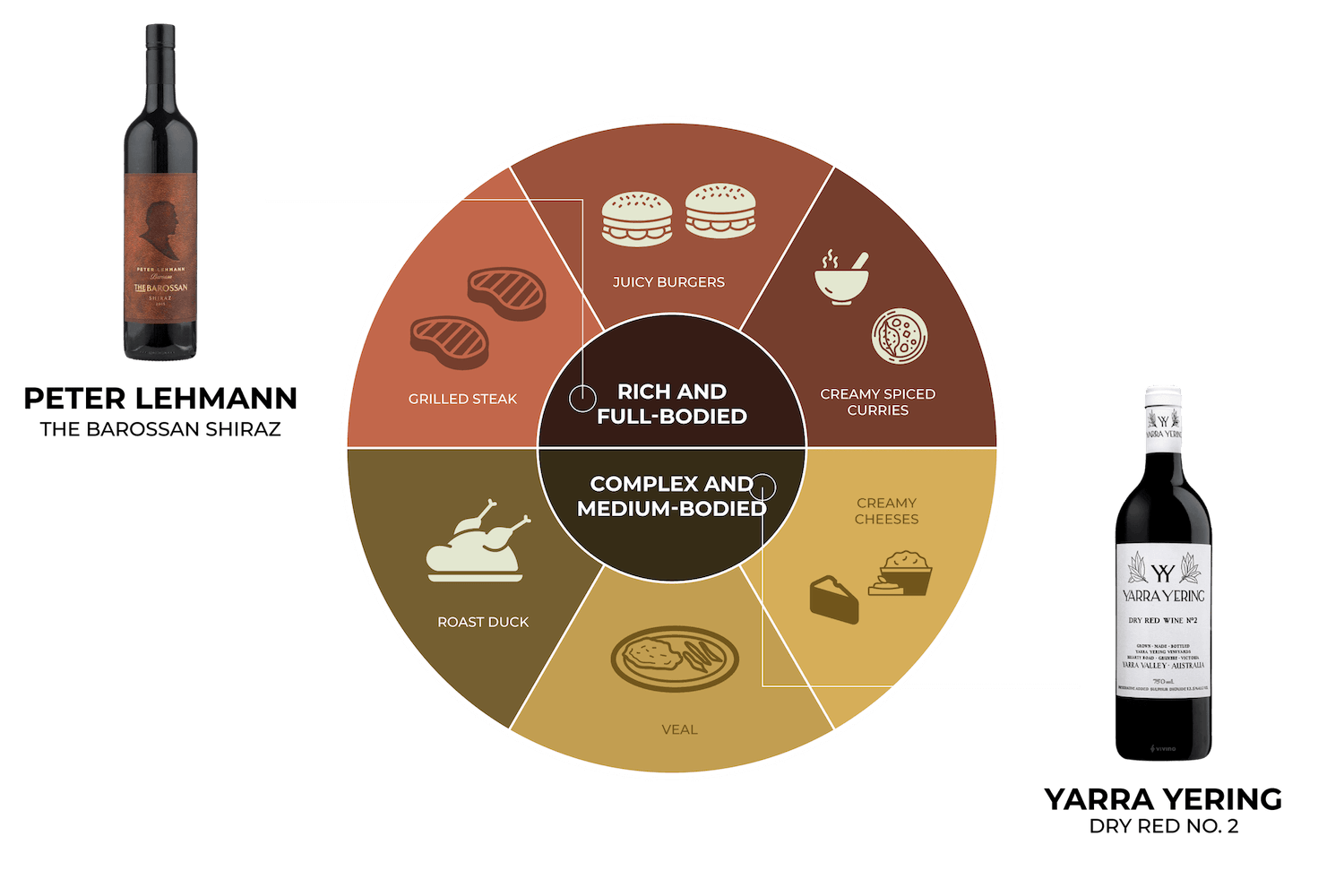Shiraz, or syrah as it’s known in France and much of the rest of the world except Australia, is a full-bodied dry red wine that is often consumed for its prominent flavours of dark fruit, spice, and even gentle smoke and herbs.
In this guide to shiraz and syrah, we will explore the essential pieces of information that you need to be able to confidently pick and enjoy this famous style of red.
For a quick guide on how these wines will taste, see below for our handy snapshot.
As mentioned previously, it is possible to see this style of wine as being called shiraz or syrah depending upon which part of the world you reside.
Those from Europe, America, and most of Asia will recognise these wines as being labelled syrah, which is due to the grapes origins in the Northern Rhône wine-growing region in South-Eastern France.
Those residing in Australia and some other select parts of the world, however, will be more accustomed to seeing bottles of this style as being named shiraz.
Genetically speaking, these two names represent the exact same variety of grape, with the grape found in Australia being brought there in the early 19th Century.
When looking into how these wines taste it is far more important to look into where the grapes were grown rather than the name attached to the bottle.
Those shiraz/syrah grapes grown in warmer climates, such as the Barossa Valley in South Australia, produce full-bodied and rich styles of wine that are full of dark, jammy berry flavours partnered with additional layers of spice and dark chocolate.
The grapes of this style, when grown in cooler climates such as the Yarra Valley in Victoria or the northern part of the Rhône Valley in France, will go on to produce decidedly more medium-bodied styles of wine that are known for their softer berry flavours and increased levels of peppery spice.
France is the world’s largest cultivator of syrah grapes, with the Rhône Valley region in the South-Eastern part of that country laying claim to being the original producer of this style.
Though it is grown in other parts of the country, the Rhône Valley wine-growing region is by far the most important region to consider when looking into syrah wines from that country.
As a general guide, the wines produced from this grape varietal in the cooler northern part of the Rhône Valley will present as quite medium-bodied in their style, with common flavours, including white pepper, soft dark fruits and berry, and a distinct minerality, being found.
The syrah-based wines hailing from the south of that region, however, where the climate is far warmer, are much more expressive and full-bodied in their nature, with stronger dark berry and fruit flavours being common.
This site offers more information on what to expect from Rhône Valley syrah, including some of the grapes storied history in this region.
Although Australia has only been growing shiraz grapes since the early 19th Century, it now sits behind only France in terms of global production.
When looking into Australian shiraz the two most important regions to consider include the Barossa Valley in South Australia and the Hunter Valley in New South Wales.
The warm climate Barossa Valley region in South Australia is responsible for producing some of the best examples of Australian shiraz available, including the world-renowned Penfolds Grange.
Generally speaking, you will find the shiraz wines originating in the Barossa Valley to be perhaps the most expressive styles of Australian red wine today, with it common to find intense jammy berry flavours and layers of pepper and other spice presented in a full-bodied wine.
Turning to New South Wales, the Hunter Valley region is easily the most important region in the entire history of shiraz in Australia, with the grape first being cultivated here before spreading to other parts of the country.
Flavourwise, shiraz wines produced in the Hunter Valley tend to be slightly less full-bodied than those produced in the Barossa Valley, although they are still considered to be incredibly rich and flavoursome in their overall style.
Common flavours found include notes of subtle vanilla and sweet berry alongside earthy undertones.
To discover more on the taste of shiraz wines in Australia and some of the best bottles available, be sure to consider this incredibly interesting article.
Although shiraz and syrah based wines can be quite diverse in terms of their specific flavour profile, matching them with food can prove to be a thoroughly rewarding experience.
As a general guide, the more medium-bodied expressions of this style produced in cooler climate regions such as the Hunter Valley and the Northern Rhône Valley tend to match best with veal, roast duck, and creamy cheeses.
The full-bodied and rich styles of shiraz and syrah found in warmer climates such as the Barossa Valley and the Southern Rhône Valley will tend to go best with heavier red meat dishes and creamy spiced curries.
There's a bottle of shiraz and syrah out there for everyone. Here are some of the brands and bottles that we recommend you look out for the next time you're browsing online or in-store.
Ever wondered whether or not the age of a bottle of wine matters when deciding its quality? In this article, we explore just how important age is when looking at wine.
With bottle shops expanding their range, we’ve taken the time to explain why some wines are and some are not vegan & organic in order to help you choose wisely.
Ready to begin your journey into the world of wine but don’t know where to start? Here’s our primer on what bottles & styles to try when just starting out.






